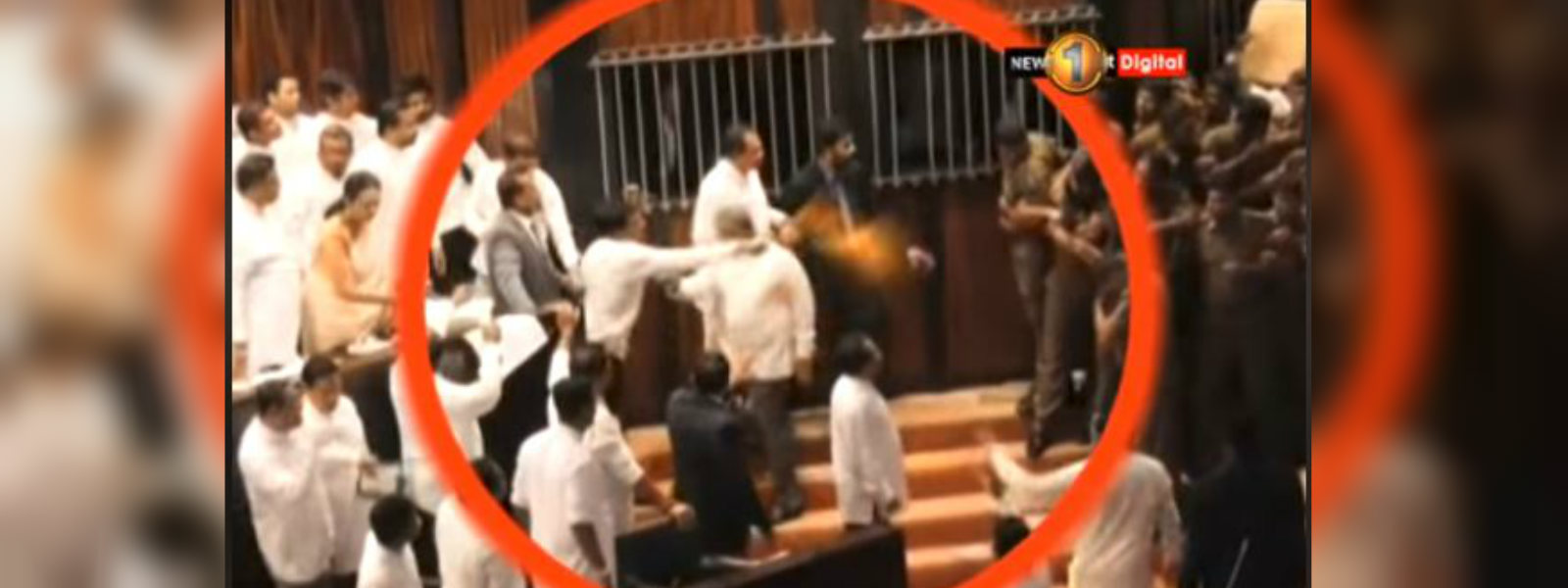.webp)

Have our elected representatives failed us?
“Quis custodiet Ipsos custodes?” (“Who will guard the guard themselves?) - Juvenal from his Satires (Satire VI, lines 347–348)
The despicable and deplorable acts of some Members of Parliament, during Parliamentary proceedings on the 15th and 16th of November 2018, in particular, infringes on the sovereignty and conscience of the people of our nation.
The wolves masquerading as sheep would have us believe that the ends justify the means. Yet, no one is fooled, as alas, their fleece runs quite thin. They try to convince us that indiscipline, violence, disregard for the law and Parliamentary procedure is all being carried out so that 'proper' government is established. They throw tantrums, toss objects, chant slogans, screech insults and batter each other, within the House itself, resorting to mob-like behaviour that defies all logic. They attack the office and person of Speaker in an appalling manner to intimidate him and prevent Parliamentary proceedings from being carried out. This is all done to perpetuate the reality that they believe in and to deny their inevitable defeat. To delay the truth of not one, but two votes, in the House. To deny that they have failed to obtain a majority on the floor of the House.
The word ‘democracy’ is thrown around to defend every disgraceful act committed by Members of Parliament (MPs) against other Members of Parliament and thus against law and order in our nation. Democracy, a system of government, through elected representatives, rests on the restriction of the arbitrary exercise of power i.e. the rule of law. No one is above the law and certainly not the lawmakers of a nation. Every MP is accountable to the Constitution of the Democratic Socialist Republic of Sri Lanka, the laws of this country, the rules and practices of Parliament and hopefully, his conscience, and must be held accountable for his actions. Every MP is to act according to the law and under the law and this is the bedrock of a democratic society.
Furthermore, the basis of a democracy may be explained by relying on the idea of the social contract. In the 17th and 18th centuries, the idea of the social contract was formulated as a basis for understanding the nature of the relationship between state and citizen. The essence of the social contract theory is the voluntary submission of individuals in society to those who exercise authority to rule over them.
Thomas Hobbes (1588 – 1679) believed that men lived in a situation where there was “a war of every Man against every Man” which threatened the self-preservation of individuals and created conflict in that society. Thus, in order to preserve their own lives and to regulate conduct in society, people would transfer their power to a sovereign ruler, who now had the
authority over them according to this ‘contract’ that was created between them. John Locke (1632-1704), in contrast, believed that people lived in idyllic conditions but their rights to property were threatened and therefore political power of the people was transferred to their rulers to be used for the public good. This transfer of power was based in trust, with the rulers, acting in a fiduciary capacity rather than contractual capacity, held accountable for the use of power. Where there was abuse of power, the people were to rebel and to resist such exploitation of their power, so that former political order would be restored. Rousseau (1712-1778) believed that people should govern themselves, but cannot be asked to spend all their time on public affairs, and thus a government that reflects the general will, is set up. However, he specified the presupposition of direct participation by citizens for the law and authority of the rulers to be obeyed. Kant saw the social contract theory as a logical analysis of the basis of a political society and particularly relies on such theories as a way to assess the performance of the rulers.
Accordingly, where people have entered into such a metaphorical, if not literal, pact on governance, the rulers are to be held responsible for their use and abuse of power. Section 3 of Part 3 of the Code of Conduct for Members of Parliament provides that every Member of Parliament takes an oath to ‘uphold and defend the Constitution’ and ‘to uphold the integrity of the State’. Section 9 (d) of Part 5 of the Code calls upon Members of Parliament to give effects to the concepts of democratic government, abide by the letter and spirit of the Constitution and uphold the doctrine of Separation of Powers and the Rule of Law”. Section 13 of the same Part of the Code further provides that Members of Parliament shall “not undertake any activity which may cause damage to the reputation and integrity of the Parliament or of its Members or the country”. The abhorrent acts of certain MPs today violate these provisions with UPFA MP Kumara Welgama himself stating that “this is a sad state of affairs” and that these incidents “will bring shame to the country”. Every Member of Parliament, regardless of the party they belong to, must be held accountable under the law and intraparty discipline, irrespective of intraparty factions, must be established.
Article 4 (a) of the Constitution of the Democratic Socialist Republic of Sri Lanka provides, “the legislative power of the People shall be exercised by Parliament, consisting of elected representatives of the People and by the People at a referendum”. The sovereignty of the people is vested in Parliament and consequently there should be no immunity for the members of this hallowed House with regard to their abuse of power but rather the guards are to be guarded themselves
Other Articles
Featured News





.png )
-819380_550x300.jpg)


-812087_550x300.jpg)
-810262_550x300.jpg)
-809496_550x300.jpg)




















.gif)